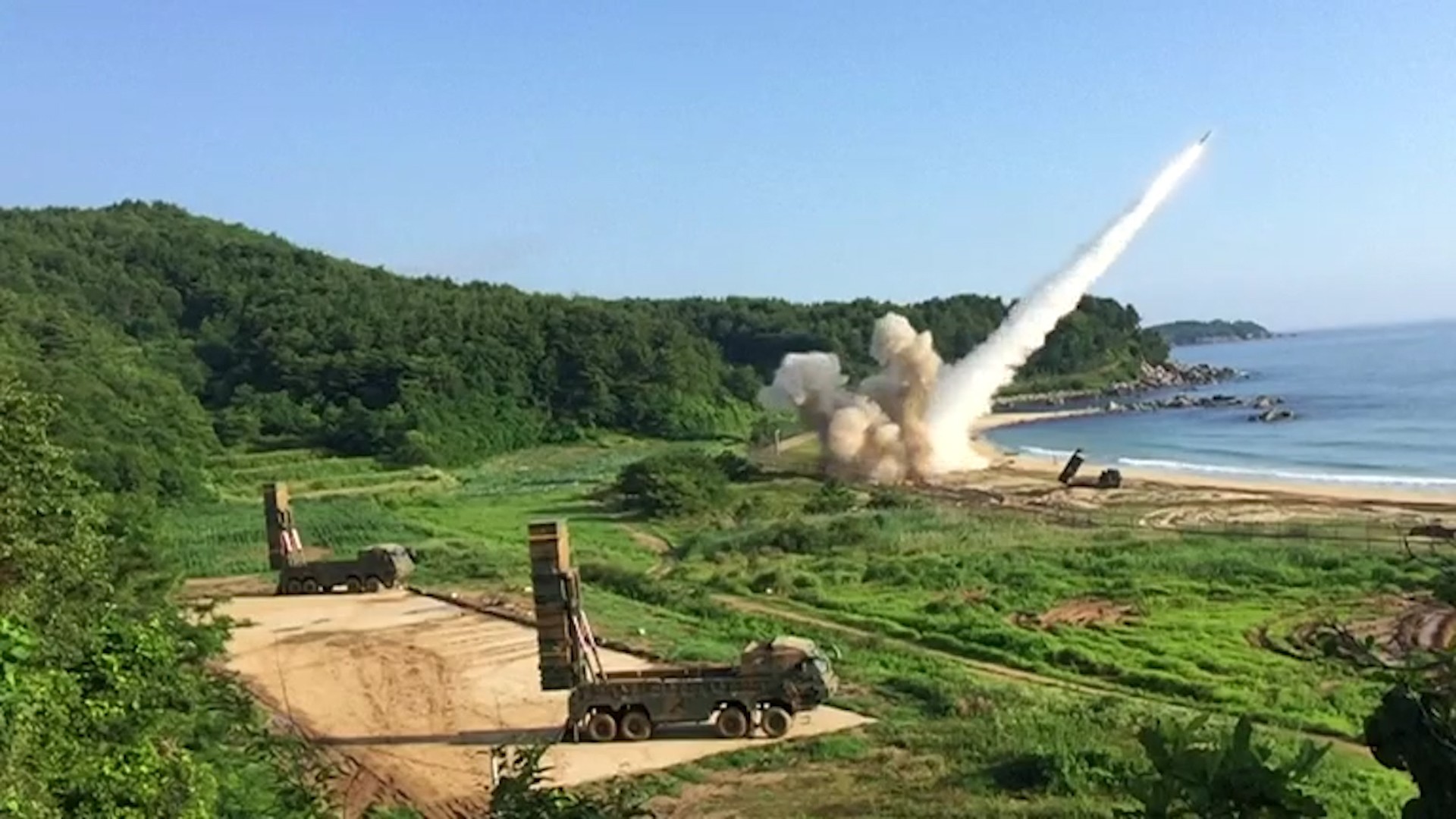North Korea announced Monday night that it was willing to resume nuclear talks with the U.S. following months of stalled negotiations.But hours later, the Hermit Kingdom test-fired two more short-range missiles, its eighth such test since late July.The tests, which U.S. President Donald Trump has continually dismissed, have allowed Pyongyang to perfect its short-range arsenal, which could strike U.S. allies like Japan and South Korea without crossing Washington’s red line on testing long-range missiles. It also shows Washington that Pyongyang remains a threat to be taken seriously.Tuesday’s missile test took place at around 7 a.m. local time and saw two short-range projectiles launched from Kaechon in South Pyongan province (around 50 miles north of Pyongyang).The missiles traveled about 330km (205 miles) before ditching into the East Sea on Tuesday morning, South Korea's military said.“Our military is monitoring the situation in the case of additional launches and maintaining a readiness posture,” said the Joint Chief of Staff in Seoul, calling on the North “to instantly stop such acts that heighten tensions.”A U.S. official said the White House was monitoring the situation in close cooperation with its allies.READ: Kim Jong Un released pictures of the “super powerful” missiles he fired as a “solemn warning”The launch came just hours after North's First Vice Foreign Minister Choe Son Hui said her country was willing to return to the negotiating table later this month, but only if the U.S. could come up with an offer than was suitable to Kim Jong Un.“I want to believe that the U.S. side would come out with an alternative based on a calculation method that serves both sides' interests and is acceptable to us," she said.Trump told the reporters that the proposal was “interesting” adding: “We'll see what happens.”The two sides have been at a standoff since talks broke down in February when U.S. President Donald Trump walked away from the negotiating table because Kim was demanding complete sanctions relief before any move on denuclearization.“The two sides have opposite preferences regarding how to proceed forward,” Baohui Zhang, director of the Centre for Asian Pacific Studies at Lingnan University in Hong Kong, told VICE News. “It has been the issue that caused the failure of previous rounds of summit meetings and negotiations and also explains the lack of concrete progress so far.”Although the North has continued test-firing short-range missiles, and despite increasing evidence that North Korea is continuing activity at its nuclear sites, Trump has played down the threat.READ: It looks like North Korea is building a submarine that can launch nuclear missilesOn Sunday, when asked about the missile tests, Secretary of State Mike Pompeo made it clear that restarting talks was the primary goal. “We wish that he would stop that. But our mission set at the State Department is very clear: to get back to the table,” Pompeo said in an interview with ABC News.The U.S. president has repeatedly cited the lack of a nuclear test as evidence that Kim is living up to a promise he made during the leaders’ first summit in June 2018, dismissing the short-range tests as unimportant — despite the threat they pose to America’s allies.Zhang says that Trump’s unwillingness to criticize the North’s actions could be born of his desire for a foreign policy victory with North Korea. In his eagerness, Zhang predicts, Trump might be willing to give some concessions in order to get back to the negotiating table.READ: North Korea just fired some more missiles a few days after Trump said It's NBD“My hunch is that Trump may be more flexible this time,” Zhang said. “The reason is that he needs some achievements on the foreign policy front when the domestic economy is slowing down and the trade war with China is taking a toll. The U.S. may lift some sanctions in exchange for North Korea freezing some facilities and capabilities.” Cover: People watch a TV showing a file image of a North Korea's missile launch during a news program at the Seoul Railway Station in Seoul, South Korea, Tuesday, Sept. 10, 2019. North Korea launched at least two unidentified projectiles toward the sea on Tuesday, South Korea's military said, hours after the North offered to resume nuclear diplomacy with the United States but warned its dealings with Washington may end without new U.S. proposals. The sign reads "North Korea launched at least two unidentified projectiles." (AP Photo/Ahn Young-joon)
Cover: People watch a TV showing a file image of a North Korea's missile launch during a news program at the Seoul Railway Station in Seoul, South Korea, Tuesday, Sept. 10, 2019. North Korea launched at least two unidentified projectiles toward the sea on Tuesday, South Korea's military said, hours after the North offered to resume nuclear diplomacy with the United States but warned its dealings with Washington may end without new U.S. proposals. The sign reads "North Korea launched at least two unidentified projectiles." (AP Photo/Ahn Young-joon)
Advertisement
Advertisement

